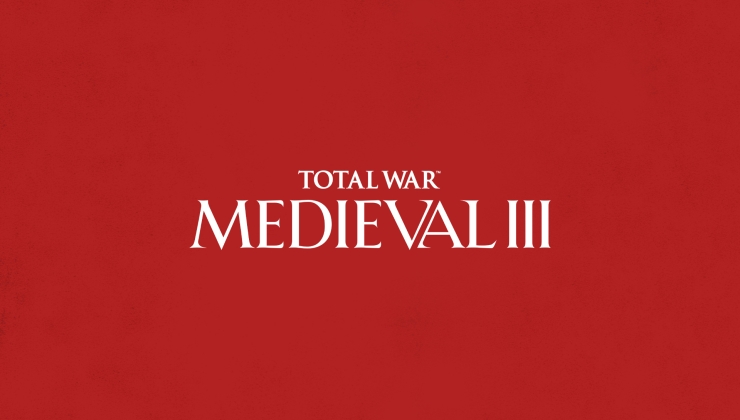Canonical announced shortly after the release of Ubuntu 23.10 that the official downloads were pulled, as there was hate speech identified from a malicious contributor in some of their translations.
They posted the announcement on X, with a link to their Discourse post that gave a bit more info. In the post they mentioned it affected a "specific set of translations of the Ubuntu Desktop installer UI" and so they've taken immediate action to sort the situation with the translations being removed and replaced.
Affected downloads were for Ubuntu Desktop 23.10, Ubuntu Budgie 23.10 and the Ubuntu Desktop daily images.
Since it's all open source on GitHub, we can go in and check what actually happened. Specifically, the Ukrainian translation has been entirely removed for now and it doesn't really take a lot of thought as to why. I translated a bit of it that I won't repeat here and…yeah. No surprise it has been pulled, it was bad.
Completely ridiculous that someone would target a Linux distribution like this.
Nevertheless it's good they retracted this.
It's also good to realize that opensource means open traceability and finding of bad intentions.
It's "generic" Gay and Jew/Israel hate.
And with generic I don't want to downplay, I use it here in the sense that it's not referencing any current event.
Last edited by Matombo on 13 Oct 2023 at 11:46 am UTC
Quoting: kroitusGit history and discussion there shows, that those malicious translations were added by a russian, who work(ed) at Canonical office in San Francisco. He's been fired, and may face deportation to motherland.Please, let's not draw such far-reaching conclusions, this is not the place for politics.
The guy you're talking about actually works for Canonical, but if you check git - he deleted the entire Ukrainian translation while waiting for it to be corrected. He is not responsible for anti-Semitic and offensive content. He only removed it.
The man who did this has already deleted his github account, but traces remain. For a long time he has been a social translator of various Linux projects into Ukrainian, among others for system76. His nationality is unknown.
Quoting: SalvatosAnd this is why I'm always a little dubious when companies ask for crowdsourced translations and don't even hire professional reviewers. It's hard enough to ascertain you're getting quality work from professionals in a language you can't even read, but there's really nothing stopping random schmoes from pulling stunts like these if you don't even check.I was taking part in the crowd sourced translation of Wasteland 2 to German, and while I didn't see something malicious, the result was so bad that I ended up (content spoiled of course and) playing the game in English. There was especially one person which was very diligent, but not very good at it.
Quoting: EikeSmall world, I was part of the French team :) If I remember correctly, we had an actual reviewer or at least coordinator overseeing things, plus we had good communication among the translators, so even though I didn't agree with every term we chose, everything contentious was talked through and we reviewed each other’s work, so it was a decent process overall. I never checked the end result in play, though.Quoting: SalvatosAnd this is why I'm always a little dubious when companies ask for crowdsourced translations and don't even hire professional reviewers. It's hard enough to ascertain you're getting quality work from professionals in a language you can't even read, but there's really nothing stopping random schmoes from pulling stunts like these if you don't even check.I was taking part in the crowd sourced translation of Wasteland 2 to German, and while I didn't see something malicious, the result was so bad that I ended up (content spoiled of course and) playing the game in English. There was especially one person which was very diligent, but not very good at it.
Your mention of "very diligent, but not very good at it" reminds me of some things I’ve seen on the Linux Mint Launchpad. Clément Lefebvre (lead developer) is a French speaker, so of course a lot of the French strings for the project come directly from him. Sometimes I see that other people have gone through and changed his translations to other interpretations of strings that could mean something different out of context - but of course he knew the context he was writing for and the replacements are totally inadequate.
It’s sad but true: when you accept everybody’s help, sometimes you’ll get contributions that aren’t really as helpful ;)
Quoting: SalvatosIt’s sad but true: when you accept everybody’s help, sometimes you’ll get contributions that aren’t really as helpful ;)Unfortunately, translation platforms like Weblate generally lack a way to organize translators in a way that they are always reachable. You could have a separate chat platform, but this isn't the best way to ensure contributors are reachable even years after they've contributed to the project.
Quoting: SalvatosAnd this is why I'm always a little dubious when companies ask for crowdsourced translations and don't even hire professional reviewers. It's hard enough to ascertain you're getting quality work from professionals in a language you can't even read, but there's really nothing stopping random schmoes from pulling stunts like these if you don't even check.It reminds me of that time a guy was supposed to be a sign language interpreter but was actually just doing a bunch of random hand motions. It can happen whether you crowd source or not.











 How to setup OpenMW for modern Morrowind on Linux / SteamOS and Steam Deck
How to setup OpenMW for modern Morrowind on Linux / SteamOS and Steam Deck How to install Hollow Knight: Silksong mods on Linux, SteamOS and Steam Deck
How to install Hollow Knight: Silksong mods on Linux, SteamOS and Steam Deck